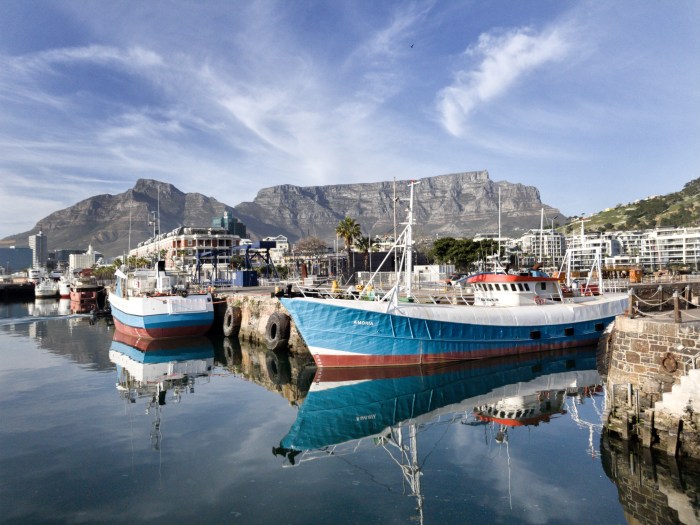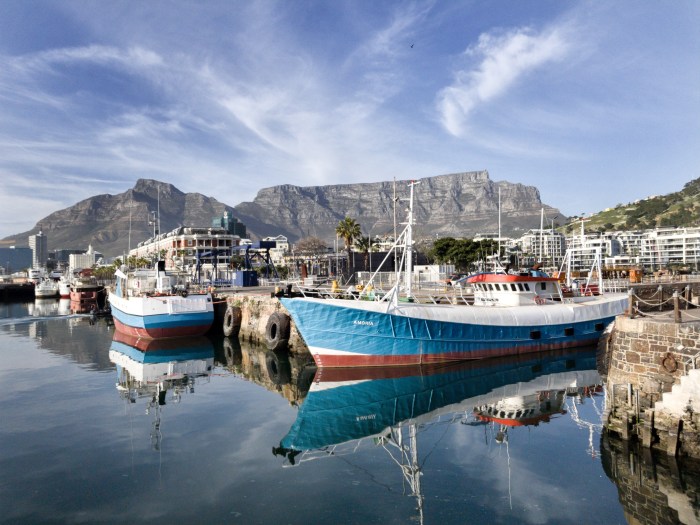South Africa gold rush, a period of immense transformation, reshaped the nation’s landscape and destiny. Driven by the discovery of gold, a wave of migration and settlement swept across the region, fundamentally altering existing social structures and economies. Early discoveries ignited a frenzy, drawing in prospectors, entrepreneurs, and laborers from across the globe, with profound and lasting consequences.
This period witnessed the rise of new towns and cities, the expansion of industries related to gold extraction, and significant changes in infrastructure. The rush also brought about profound social and cultural shifts, as diverse groups interacted and often clashed, leading to the emergence of complex social hierarchies. The influx of people and the demand for resources impacted the environment, leaving a legacy that continues to shape South Africa today.
Introduction to the South African Gold Rush
The discovery of gold in South Africa in the mid-19th century sparked a massive migration and transformed the region. This period, often referred to as the South African Gold Rush, saw a dramatic influx of people from across the globe seeking their fortune. The allure of riches, combined with the promise of a new life, propelled a significant population shift and laid the foundation for modern South Africa’s economic and social landscape.The gold rush was not a sudden event but rather a gradual process, fueled by initial discoveries that ignited a wave of excitement and speculation.
The discovery of gold in the Witwatersrand region profoundly altered the demographics and economic structure of the country, leading to profound and lasting consequences. This period, marked by both opportunity and exploitation, continues to shape the narrative of South Africa today.
The South African gold rush, a period of immense wealth and opportunity, often overshadows the environmental impacts of such frenzied resource extraction. Similarly, the precious kauri trees of New Zealand face threats from logging and climate change, much like the ecological scars left by the gold rush era in South Africa. Protecting these ancient trees, as detailed in this insightful article about kauri trees at risk , reminds us of the delicate balance between human endeavor and the natural world, even in the context of historical events like the South African gold rush.
Key Factors Triggering Migration
The discovery of gold in the Witwatersrand region, coupled with the global economic climate of the time, attracted a large number of individuals. The allure of riches and the potential for a better life prompted substantial population movement. Furthermore, advancements in transportation, such as the development of railways, facilitated the movement of people and goods, making the journey to South Africa more accessible.
The combination of these factors played a crucial role in igniting the gold rush.
Initial Discoveries and Impact on Local Communities
The initial discovery of gold in the Witwatersrand region, in 1886, was a watershed moment. The discovery by a farmer named George Harrison sparked a frenzy of activity. This discovery led to the establishment of mining operations and settlements, fundamentally altering the local communities. The arrival of a large number of prospectors and miners significantly impacted the indigenous communities, with some communities facing displacement and exploitation.
Major Players in the Early Stages
Several prominent figures played crucial roles in the early stages of the gold rush. Cecil Rhodes, a British businessman and politician, became a major player, acquiring vast tracts of land and establishing mining companies. Other influential figures included financiers and investors who recognized the potential for profit and poured resources into the burgeoning industry. These individuals, along with the many miners, shaped the trajectory of the gold rush.
Timeline of Early Gold Rush Events
| Date | Event | Location | Key Figures |
|---|---|---|---|
| 1886 | Discovery of gold in the Witwatersrand | Witwatersrand, Transvaal | George Harrison, early prospectors |
| 1887 | Establishment of the first major gold mining companies | Witwatersrand, Transvaal | Cecil Rhodes, mining investors |
| 1890 | Rapid influx of prospectors and miners | Witwatersrand, Transvaal | Various prospectors and miners |
| 1895 | Establishment of Johannesburg | Witwatersrand, Transvaal | Gold rush settlers |
Economic Impact and Development
The South African gold rush, a period of immense economic upheaval and transformation, irrevocably altered the nation’s trajectory. The influx of capital, people, and ideas spurred unprecedented growth in various sectors, but also created stark inequalities and challenges for existing communities. This period laid the foundation for modern South Africa, shaping its economy, infrastructure, and social fabric in profound ways.The gold rush’s impact was not uniform across all segments of society.
While it generated substantial wealth for some, it also exacerbated existing social and economic disparities, creating a complex and often contradictory legacy. The scramble for gold brought about significant changes in infrastructure, industrial development, and urban growth, but also highlighted the deep-seated inequalities that persisted and, in some cases, worsened.
Immediate Economic Effects
The immediate economic impact of the gold rush was characterized by a rapid increase in mining activity. Gold became the primary driver of the South African economy, attracting both domestic and foreign investment. The demand for labor skyrocketed, leading to the recruitment of workers from various parts of the country and beyond. This influx of labor also stimulated the growth of supporting industries, such as food production, transport, and housing.
Long-Term Economic Effects
The long-term economic effects of the gold rush were profound and multifaceted. The mining industry became a cornerstone of the South African economy, shaping its development for decades to come. The wealth generated from gold fueled industrialization and the development of infrastructure, leading to the construction of railways, ports, and other essential facilities. However, the concentration of wealth in the hands of a few created stark social and economic disparities.
Economic Opportunities for Different Social Groups
The gold rush presented varied opportunities for different social groups. European miners and investors generally benefited most from the immediate economic boom, acquiring significant wealth through gold extraction and related businesses. African laborers, while crucial for the mining operations, faced exploitative labor conditions and received significantly lower wages compared to their European counterparts. The limited opportunities for non-European communities in the lucrative gold sector contributed to the deepening racial inequalities.
Asian communities, while involved in supporting industries, were often confined to specific roles and faced significant social discrimination.
Changes in Infrastructure and Development
The influx of people and capital brought about significant changes in infrastructure. Railways were constructed to transport gold and workers to and from mining areas, facilitating trade and connecting previously isolated regions. New towns and cities emerged near mining sites, becoming hubs of economic activity and population growth. The development of water and sanitation systems, although crucial for the health of the growing population, were often unequal in their provision across different communities.
Growth of Industries and Services
The gold rush spurred the growth of various industries and services directly and indirectly related to gold extraction. These included food processing, transportation, housing, and retail. The expansion of these industries provided employment opportunities, although often unevenly distributed across different racial groups. This also led to the emergence of new businesses and entrepreneurship in these support sectors.
Emergence of New Towns and Cities, South africa gold rush
New towns and cities sprang up around mining areas, driven by the need to accommodate the burgeoning population of miners, merchants, and other related workers. Johannesburg, a prime example, rapidly evolved from a small settlement to a major metropolis, driven by the allure of gold and the potential for economic advancement. The development of these towns often reflected the existing social hierarchies, with separate housing and infrastructure for different communities.
Economic Status of Different Communities Before and After the Gold Rush
| Community | Economic Status Before the Gold Rush | Economic Status After the Gold Rush |
|---|---|---|
| European Settlers | Generally, a minority with limited economic power. | Experienced significant economic growth, becoming a dominant force in the economy. |
| African Communities | Traditionally engaged in subsistence agriculture and other rural activities. | Exploited as cheap labor in the mines, facing extreme poverty and inequality. |
| Asian Communities | Various levels of economic activity. | Limited economic opportunities, often confined to specific roles in support industries. |
Social and Cultural Transformations

The South African Gold Rush, a period of immense economic upheaval, profoundly reshaped the social and cultural landscape of the region. Massive migrations, driven by the allure of gold, led to the emergence of entirely new communities and social structures. These burgeoning settlements, often starkly contrasting with existing traditions, witnessed a complex interplay of cultural interactions, both harmonious and fraught with conflict.
This period saw the emergence of new social hierarchies, shifting gender roles, and a fundamental transformation of existing cultural practices.
Migration Patterns and New Social Structures
The discovery of gold attracted a wave of migrants from across South Africa and beyond. These newcomers, drawn by the promise of wealth, sought to establish their lives in the mining areas, often leaving behind their traditional communities and livelihoods. This influx resulted in the rapid growth of mining towns and the development of a distinct urban proletariat.
The diverse origins of these migrants created a melting pot of cultures, contributing to a new social fabric that was both vibrant and often tense. Initially, these migrants were largely male, leading to a skewed gender balance in the early years.
Diverse Cultural Interactions and Conflicts
The influx of people from various backgrounds, including European settlers, African communities, and immigrants from other parts of the world, resulted in a complex interplay of cultural interactions. Competition for resources and opportunities often led to tensions and conflicts. For instance, disputes over land ownership and access to water became common. The existing cultural norms and traditions of the indigenous communities were often challenged by the influx of new settlers, leading to clashes over social values and practices.
While some interactions were peaceful and mutually beneficial, others were marked by prejudice and discrimination.
Impact on Existing Cultural Traditions
The gold rush profoundly impacted existing cultural traditions in several ways. Indigenous communities were often displaced from their ancestral lands, disrupting their traditional agricultural practices and social structures. The introduction of new technologies and economic systems led to a gradual shift away from traditional forms of livelihood and governance. For instance, the introduction of European farming methods, though not always successful, altered the agricultural practices of some African communities.
The South African gold rush, a period of intense economic activity, dramatically reshaped the nation’s landscape. While the rush is long past, its legacy continues to resonate. Interestingly, with France now easing major COVID-19 travel restrictions, france ends major covid rules what changes for travelers might encourage a new wave of international exploration, potentially drawing inspiration from the pioneering spirit of the gold rush era.
This renewed interest in travel could eventually lead to more tourists visiting South Africa, echoing the historical influx during the gold rush.
Role of Women During the Gold Rush
Women played a crucial role in the gold rush, despite the often difficult and dangerous conditions. Many women joined their male partners in the mines, taking on roles as domestic servants, traders, and entrepreneurs. This period witnessed a significant shift in the traditional roles of women, though the experience varied greatly based on their social class and origin.
The availability of employment opportunities, albeit limited, allowed women to contribute to the economy and support their families. The establishment of women’s support networks, often across ethnic lines, became essential for survival in the harsh mining environments.
Living Conditions of Different Social Groups
Living conditions in the gold mining areas differed dramatically based on social class and ethnicity. European miners, often benefiting from established connections and networks, generally had access to better housing, food, and healthcare. African miners, and workers from other groups, often faced harsh living conditions, inadequate sanitation, and limited access to essential resources. This disparity in living conditions highlighted the inherent inequalities of the social hierarchy and the marginalization of certain groups.
The South African gold rush, a period of intense activity and discovery, brought fortunes and hardship to many. While the gold fields were a hotbed of ambition, today’s travelers seeking relaxation and luxury might be more interested in the stunning beachfront hotels and resorts, like the ones found at hotels resorts beach hotels soho house first caribbean property canouan.
Ultimately, both the gold rush and modern tourism reflect South Africa’s captivating blend of history and natural beauty.
Social Hierarchy in Gold Mining Communities
| Social Group | Description | Living Conditions | Opportunities |
|---|---|---|---|
| European Miners (primarily British and other European nationalities) | Often held managerial positions or owned businesses. | Generally better housing, access to food and healthcare. | Higher earning potential and greater control over resources. |
| African Miners | Predominantly laborers in the mines. | Harsh living conditions, inadequate housing, limited access to resources. | Limited opportunities and lower wages. |
| Chinese Miners | Played a significant role in the mining industry. | Often lived in segregated communities. | Contributed to the mining industry, despite facing discrimination. |
| Other Ethnic Groups | Including Indians and others, contributing to the diverse labor pool. | Varied, often facing similar challenges to African miners. | Limited opportunities and faced discrimination. |
Political and Legal Implications: South Africa Gold Rush
The South African gold rush, a period of immense economic and social upheaval, was profoundly shaped by the political and legal systems in place. The colonial powers, particularly the British, wielded significant influence, profoundly impacting the mining process, land ownership, and the evolution of governance structures. Understanding these political and legal intricacies is crucial to comprehending the full scope of this historical event.
Colonial Influence and Policies
The British, having established control over the region, implemented policies that favored their interests. These policies often disregarded the rights and needs of the indigenous population, leading to significant social and economic inequalities. Directly influencing the mining industry, the British government enacted laws that favoured British mining companies and limited opportunities for local participation. This control, often exercised through indirect rule or by implementing legislation, profoundly shaped the development of the mining sector and the overall economic landscape.
Laws and Regulations Governing Mining
A complex web of laws and regulations governed the mining process, including those related to land ownership, resource extraction, and labor practices. These laws often reflected the colonial powers’ priorities, aiming to maximize resource extraction and profit. The legal framework, while intended to maintain order, frequently fell short of adequately protecting the interests of local communities. These rules often favored the interests of large-scale mining companies, sometimes at the expense of smaller operations and individual miners.
Conflicts and Disputes
The gold rush ignited conflicts and disputes between different groups regarding land ownership and resource access. Indigenous communities faced dispossession of their ancestral lands, often through forceful and unfair means. This led to significant social tensions and, in some instances, armed conflicts. Mining claims and the allocation of mineral rights were frequently contested, highlighting the inequalities and injustices embedded within the legal system.
The unequal application of laws, particularly regarding land ownership, fueled resentment and often escalated into violent clashes.
Evolution of Governance Structures
The gold rush spurred the evolution of governance structures in response to the increased population, the demands of mining, and the emergence of new social and economic complexities. The establishment of new administrative bodies and legal institutions was often driven by the need to manage the expanding mining sector and to address the escalating conflicts. This evolution, while aimed at maintaining order, often exacerbated existing inequalities and failed to adequately represent the interests of all groups.
The transformation of governance, driven by the economic needs of the gold rush, frequently fell short of ensuring a just and equitable outcome for all.
Table of Laws and Regulations
| Law/Regulation | Impact | Implications |
|---|---|---|
| Mines and Minerals Act of 1886 | Established basic framework for mining claims. | Favored large-scale operations, limited local participation. |
| Land Acts | Defined land ownership and rights. | Often resulted in dispossession of indigenous communities. |
| Labor Laws | Regulated working conditions. | Often inadequate, leading to exploitation of workers. |
| Immigration Laws | Controlled the influx of workers. | Affected labor supply and created social tensions. |
Environmental Consequences

The South African gold rush, while a period of significant economic development, left an indelible mark on the environment. The insatiable demand for gold led to reckless exploitation of natural resources, resulting in profound and lasting environmental damage. The scale of this damage, from resource depletion to pollution, continues to impact the region today, highlighting the long-term consequences of unchecked industrial development.The relentless pursuit of gold during the rush significantly altered the landscape.
The methods employed, often rudimentary and lacking environmental safeguards, caused irreversible changes to the natural ecosystem. These alterations impacted water sources, soil composition, and overall biodiversity, creating a legacy that continues to shape the region’s environmental challenges.
Resource Depletion and Landscape Transformation
The gold rush saw an unprecedented extraction of earth, minerals, and water. Vast quantities of land were stripped bare to access gold veins. This resulted in a significant depletion of natural resources, including fertile topsoil, essential minerals, and groundwater. The impact on the local ecosystems was profound. Rivers and streams were diverted or contaminated, disrupting the delicate balance of the natural environment.
Forests were cleared to make way for mining operations, altering local weather patterns and diminishing biodiversity. The landscape was irrevocably altered, transforming once pristine areas into scarred and barren landscapes. For example, the Witwatersrand region, a once fertile area, was dramatically reshaped by gold mining, creating a unique and challenging environment for future generations.
Pollution and Waste Management Issues
Mining operations generated substantial waste, including tailings, rock debris, and chemical runoff. These materials, often contaminated with toxic substances, were frequently disposed of haphazardly, contaminating water sources and surrounding ecosystems. This toxic waste posed a significant threat to human health and the environment. For instance, cyanide, a common chemical used in gold extraction, can contaminate water sources and pose significant risks to human health.
Improper waste management practices led to soil and water contamination, harming agricultural lands and impacting local communities’ livelihoods. The absence of effective waste management systems during the gold rush left a legacy of environmental pollution that persists to this day.
Long-Term Environmental Consequences
The environmental consequences of the South African gold rush extend far beyond the immediate period. The legacy of contamination, resource depletion, and landscape alteration continues to affect the region’s environment. Acid mine drainage, a persistent problem stemming from the mining process, continues to pollute water sources and harm aquatic life. The altered topography, with its exposed soil and unstable slopes, is susceptible to erosion and landslides.
The depletion of water resources has significant implications for agriculture and human settlements. The scars of the gold rush, both visible and unseen, continue to affect the environment and the people who live there, demanding ongoing remediation and management efforts.
Before, During, and After the Gold Rush
Describing the landscape before, during, and after the gold rush requires visualizing a transformation. Before the rush, the landscape was likely characterized by rolling hills, vegetation, and natural watercourses. During the rush, the landscape was drastically altered. The area became riddled with mine shafts, open pits, and tailings dams. The environment was significantly degraded, and the visual impact was devastating.
After the rush, the landscape continued to bear the scars of mining. Though some areas might have recovered, the ecological damage remained, highlighting the lasting effects of the gold rush on the environment. One could imagine, for example, a lush valley transformed into a scarred expanse of mining operations.
Legacy and Modern Implications
The South African Gold Rush, a period of immense wealth creation and societal transformation, left an indelible mark on the nation’s fabric. Its legacy continues to resonate today, shaping economic landscapes, social structures, and political dynamics. The rush’s impact wasn’t uniformly positive, and its inequalities persist in the present day. This chapter delves into the lasting effects of this pivotal historical event.The gold rush, while propelling South Africa into a new era of industrialization, also created deep-seated social and economic inequalities.
These disparities, often rooted in racial segregation and exploitation, continue to influence the socio-economic landscape of the country, manifesting in disparities in wealth distribution and access to resources.
Continuing Economic and Social Disparities
The gold rush’s legacy is deeply intertwined with the ongoing challenges of inequality in South Africa. The historical patterns of exploitation and segregation, largely driven by the mining industry, continue to create a significant divide between different socioeconomic groups. This includes disparities in access to quality education, healthcare, and economic opportunities.
- Unequal Wealth Distribution: The concentration of wealth generated during the gold rush was not evenly distributed. This historical imbalance has persisted, contributing to the current wealth gap. Communities directly affected by the mining operations often experience lower income levels and limited access to essential services compared to other areas.
- Racial and Ethnic Disparities: The gold rush, characterized by racial segregation and exploitation, exacerbated existing social inequalities. These disparities continue to influence access to resources and opportunities for different racial and ethnic groups. The legacy of apartheid, a system directly intertwined with the gold rush, significantly impacts the socio-economic standing of various communities.
- Access to Resources and Opportunities: The uneven distribution of resources and opportunities during the gold rush continues to affect communities in the present day. Areas heavily involved in mining operations often face challenges in terms of infrastructure development, environmental protection, and access to quality education and healthcare, compared to areas less affected by the gold rush.
Historical Significance in South African Development
The gold rush was a crucial turning point in South Africa’s development, marking a shift from a predominantly agricultural economy to a more industrialized one. The influx of capital and technology spurred infrastructure development, including railways and communication networks, laying the groundwork for future economic growth. However, this development came at a significant cost, leading to the lasting socio-economic and political consequences discussed earlier.
- Infrastructure Development: The gold rush spurred the construction of essential infrastructure, including railways, which facilitated trade and economic activity. This development laid the foundation for future growth and integration of various regions within the country.
- Industrialization and Economic Growth: The influx of capital and labor led to the establishment of mining industries and related sectors. This industrialization dramatically transformed the economy and attracted foreign investment, marking a pivotal moment in South Africa’s economic trajectory.
- Urbanization and Population Shifts: The gold rush caused significant population shifts, as people migrated from rural areas to urban centers seeking employment in the mines. This urbanization process shaped the demographics of South African cities and had lasting implications for the development of urban areas.
Influence on Contemporary Political and Social Landscapes
The gold rush profoundly influenced the political and social landscapes of South Africa. The legacy of racial segregation and exploitation directly shaped the political struggle for equality and justice. The impact of these historical events continues to resonate in contemporary debates on social justice and economic empowerment.
- Political Movements and Activism: The inequalities and injustices experienced during the gold rush fueled political movements and activism, ultimately contributing to the struggle against apartheid and the pursuit of a more equitable society. This historical context shaped the demands for social justice and political representation within South Africa.
- Social Conflicts and Tensions: The competition for resources and opportunities during the gold rush created social tensions and conflicts, often along racial and class lines. These tensions continue to manifest in contemporary South Africa, requiring ongoing efforts to address historical inequalities.
- Social and Political Structures: The legacy of the gold rush shaped the development of social and political structures in South Africa. The historical patterns of inequality continue to affect the way political power is distributed and social services are provided, highlighting the ongoing need for equitable resource allocation and representation.
Comparison of Current Economic Standing
Comparing the current economic standing of communities directly affected by the gold rush to those less involved reveals significant disparities. Areas historically associated with mining often face higher levels of unemployment, poverty, and limited access to essential services. This disparity reflects the enduring legacy of the gold rush and the ongoing need for economic development in these regions.
| Region | Involvement in Gold Rush | Current Socio-Economic Status |
|---|---|---|
| Region A | High | High unemployment, lower average income, limited access to healthcare and education |
| Region B | Low | Lower unemployment, higher average income, better access to essential services |
| Region C | Moderate | Mixed results, some improvement but disparities persist |
Wrap-Up
The South Africa gold rush stands as a pivotal moment in South African history, leaving an indelible mark on its economic, social, and political fabric. From the initial discoveries to the enduring legacy, this period witnessed profound transformations, including significant environmental impacts, and the establishment of new power dynamics. The economic and social disparities created during this time continue to resonate in South Africa’s modern landscape.















